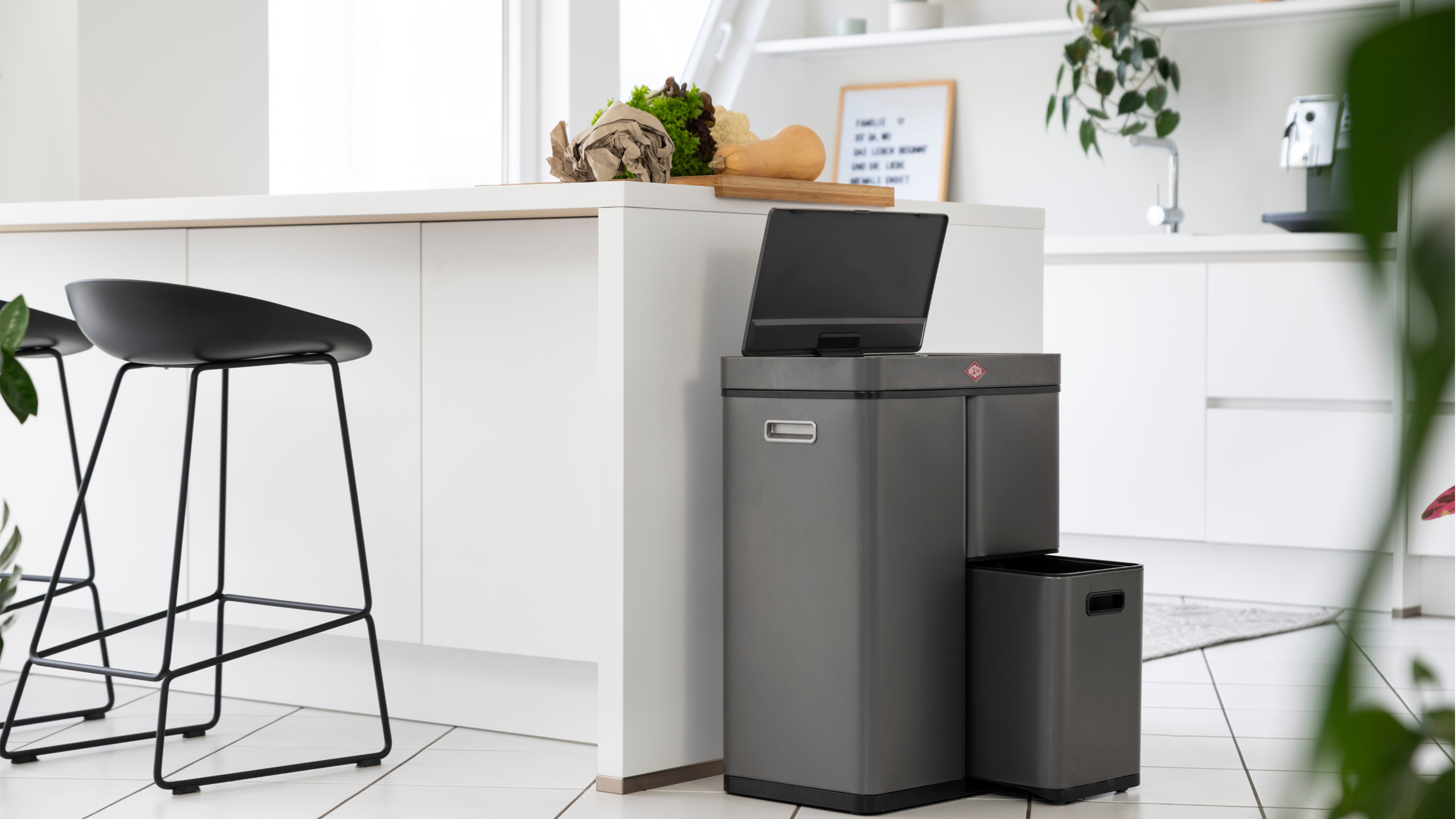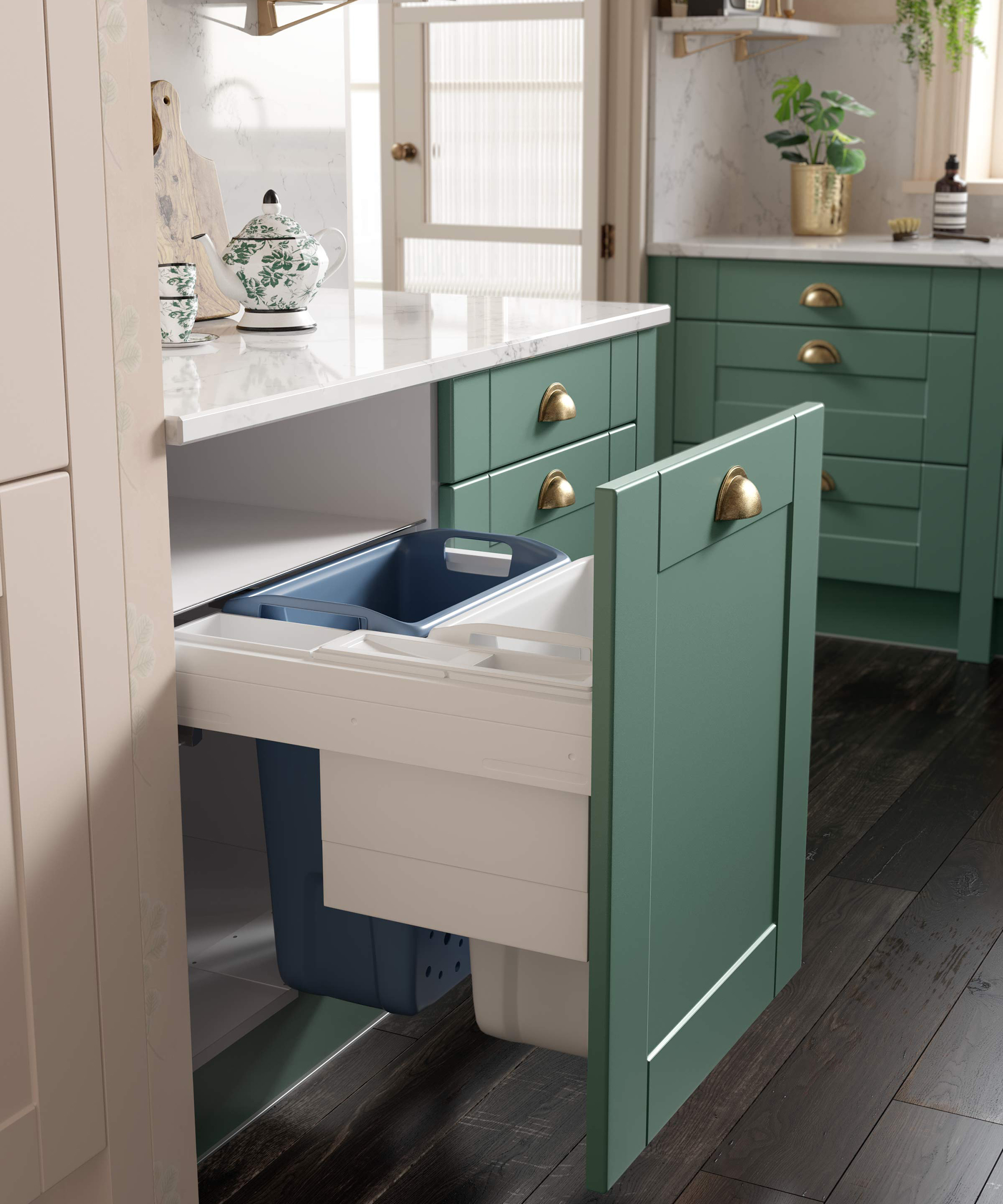How to kill maggots: effective techniques to get rid of fly larvae
Stop maggot infestations in their tracks

Emily Shaw

Get small space home decor ideas, celeb inspiration, DIY tips and more, straight to your inbox!
You are now subscribed
Your newsletter sign-up was successful
Let's cut to the chase, you want to know how to kill maggots having just discovered an infestation. And we can't say we blame you. Maggots and house flies go hand in hand and, not only are maggots completely gross, but having them in your home, bins, or garden isn't hygienic considering the fact that they can carry E. coli and may make you or your family unwell.
Thankfully, you can quickly get rid of maggots by pouring boiling water and vinegar onto the infestation. There are a few other ways you can kick these insects to the curb with ingredients you'll likely have lying around the house. Get your cleaning gloves on people, we're about to dive in and explain how to get rid of maggots with several methods.
How to get rid of maggots
First off, we're sure you know what they look like, but if you're in any doubt about how to identify these bugs in your home, buckle up because the description isn't pretty. You're looking out for small cream / off-white-colored worms that are about half an inch long, with mini ridges (aka annuli) on their bodies. Typically, if you're a bit lax with your bin schedule or you've left food to expire, you'll see these wriggling about en masse.
Helpful supplies for killing maggots

1. Boiling water
None of our approaches are particularly vegan-friendly, but hey, they certainly get the job done. One of the easiest methods for killing maggots is to simply pour a kettle full of boiling water over the maggot infestation, as this will kill them instantly.
Then, you can drain off the water — if you've found maggots in your trash can, for example — and clean the area effectively. Quick, simple, and effective. If your garbage container smells, you can add a little distilled vinegar to the hot water (1:3 ratio) to get rid of any pungent odors.
Follow up by sprinkling a good amount of baking soda over the crime scene. Cleaning with bicarb will also eliminate any unsavory scents from food that's gone a little funky and is naturally anti-bacterial, too.
2. Use vinegar, salt, or lime
Another easy way to kill maggots is to use ingredients that will (effectively) cause them to shrivel up (similar to getting rid of slugs). Maybe try not to think about that one too much.
Get small space home decor ideas, celeb inspiration, DIY tips and more, straight to your inbox!
For the best results, we'd recommend covering the maggots with a liberal amount (read: a hell of a lot) of your weapon of choice. Leave it to work its magic and come back a few hours later to scoop away the debris using an inside-out grocery bag or dog poop bag (these eco-friendly, leak-proof refuse sacks from Earth Rated on Amazon have handy tie handles). Hasta la vista, mister maggot.
3. Treat them with insecticide
Picture the scene: You've spent a substantial amount of time nurturing your small herb garden, tending to your balcony tomatoes, and keeping the slugs away from your strawberry container only to discover that your local maggot community has stormed the castle. Let battle commence.
Spray your plants with a good amount of insecticide — they used to do something similar in the Middle Ages, but with hot oil — and watch the maggots retreat. Sweet, sweet victory.
If you are looking for an eco-friendly cleaner and non-toxic garden pest control, neem oil is a planet-friendly product that is also used to get rid of aphids on your roses and other precious plants.
How to stop a maggot infestation in the first place
If you're finding them in your kitchen trash can at home, it's likely that they've got there via flies who've laid eggs on food that's been left out. When it's hot out and there are flies around, it's vital not to leave fresh produce out either.
If you do need to keep snacks and or pet food on hand, either protect it with a fine mesh cover or consider having it out for shorter periods of time (and storing it in your refrigerator if you've got space).
And, if food has been left out, and you've noticed flies swarming, bringing it straight outside to your garbage can will be better than emptying it into your indoor one. Whether you hang a grocery bag on the door handle or have a pedal/touch sensor trash can, blue bottles and other adult flies will find any opportunity to lay their grubs.
Other key areas to look out for include your kitchen floor and countertops. So if you need to sanitize these surfaces, be prepared to invest in the best mop (or steam cleaner) to clear debris off the ground and clean your counter with antibacterial wipes. Of course, big bits (like rice grains and vegetable scraps) can be sucked up with your handheld vac.

Hi, I'm the former acting head ecommerce editor at Real Homes. Prior to working for the Future plc family, I've worked on a number of consumer events including the Ideal Home Show, Grand Designs Live, and Good Homes Magazine. With a first class degree from Keele University, and a plethora of experience in digital marketing, editorial, and social media, I have an eye for what should be in your shopping basket and have gone through the internal customer advisor accreditation process.